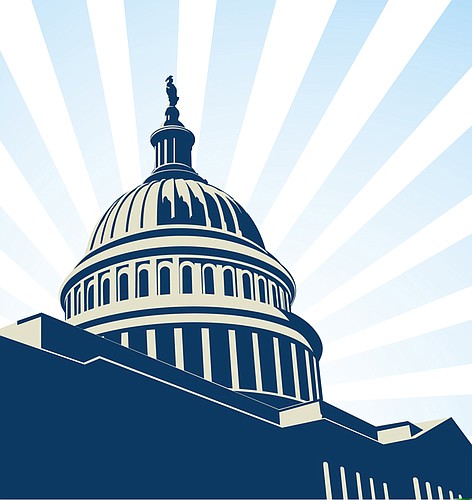- November 21, 2024
-
-
Loading

Loading

Florida Supremes
under the microscope
Perhaps never in Florida's history have so many laws been challenged in court.
In just the past few months, judges have overturned laws privatizing prisons, requiring drug testing for welfare recipients, banning physicians from asking patients gun-related questions and requiring state workers to contribute 3% to their pension plans. Rulings are forthcoming on challenges to new laws the Legislature passed last year.
From the current session, drug testing of employees and allowing students to offer “inspirational messages” are among those that will assuredly be challenged in court.
It is as if every law that the minority dislikes is challenged in court, and, to those on the political right anyway, a disturbing number of laws passed by the duly elected Legislature are overturned by appointed judges.
Some of these rulings are by federal judges who are appointed for life and are untouchable by the citizenry that must live under their rulings. But some are by the Florida Supreme Court, and that makes them reachable.
A Central Florida group is taking aim at three Florida Supreme Court justices in the judicial retention election at the bottom of November's long presidential ballot. The group, Restore Justice 2012, charges that the justices have been more like political activists than arbiters of constitutionality.
On its website, the group states, “Judicial activism is one of the greatest threats to freedom that exists in our country and state . . . Judicial activism is a problem throughout America, and it's a very serious problem here in Florida. In fact, the American Justice Partnership said Florida has one of the most activist court systems in the nation.”
The retention referendum will determine if Justices Fred Lewis, Barbara Pariente and Peggy Quince get to keep their jobs for the next six years. If the voters throw them out, something that has not happened since the appoint-and-retain system was instituted in 1976, Gov. Rick Scott would get to replace them.
The organized attempt to oust them has galvanized lawyer groups in Florida to organize a retention campaign for the justices, who are not allowed to campaign. The backers of the three include former Florida Attorney General Bob Butterworth and other Democrats and former leaders of the Florida Bar, dominated by Democrats, and a former justice appointed by Jeb Bush.
This promises to make this year the mostly hotly fought justice-retention referendum in decades.
Four law firms hired
to recover state money
Florida Attorney General Pam Bondi hired the Tampa-based law firm Fowler White Boggs, along with two Panama-City-based law firms and a Texas firm, to represent the state in recovering losses from the BP Deepwater Horizon oil spill in 2010.
The state continues to attempt to figure out how much it is owed for its response to the cleanup of the spill far into the Gulf of Mexico. Oil globs washed ashore in some Panhandle beaches, but none reached the beaches from Tampa Bay southward.
The Daily Business Review, based in Miami, reports that the law firms will receive a contingency fee cap of 2.5% of the gross recovered in the lawsuit. They can then also seek payment for attorney costs from BP and other parties in the lawsuit.
Medicaid funding fight
goes on and on
In its battle to contain ever-exploding Medicaid costs, Florida is being fought at every turn.
Last year, the Legislature passed a shift in Medicaid expenses to HMOs and other managed care providers in hopes that the market mechanisms left in health care would keep costs down and provide better services. But the change requires the feds to sign off.
After the state submitted its proposals five months ago, the federal Centers for Medicare & Medicaid Services has sent a list of questions back to the state. (Simultaneously, the Florida Agency for Health Care Administration is negotiating with the feds on a proposal to use managed care plans to cover seniors in long-term care.)
The 42 questions from the federal center range on issues of safety, maintaining a network of providers for everywhere in the state, what standards are being used to hold accountable the managed care plans and so on.
Other legislation passed this session to contain Medicaid costs is expected to be challenged in court on several counts. Also, the Florida Association of Counties is urging Gov. Scott to veto a bill that requires local governments to pay for Medicaid in cases that the municipalities claim they should not have to because of accounting or billing errors.
Pension ruling
skips to Supremes
A Florida Circuit judge's ruling that struck down last year's legislative decision to require employees to contribute 3% of their pay to their pension costs will go straight to the Florida Supreme Court for, hopefully, an expedited decision.
Lawmakers made the change last year — employees have had their pensions fully paid for by taxpayers -- to help balance the budget. After the circuit judge invalidated the law, the First District Court of Appeal chose not to hear and make a ruling, but to send it straight to the Supreme Court. An appeal either way of the district court decision was inevitable, and its decision to save time and pass on it demonstrates the import of the issue to the public.
TECO rate request
gets questioned
Tampa Electric Co. is getting some push-back on its request to pass on to customers the costs of a $55 million gypsum-storage project. Gypsum is a byproduct of scrubbers that are used to cut down on air pollution from coal-fired power plants. TECO says it needs more gypsum storage space at its Big Bend Power Center in Hillsborough County.
But the Public Service Commission is asking for more information on the request, along with lawyers representing Florida businesses and consumers.
TECO would like to pass along the costs of the project to consumers in 2015. PSC plans to decide the request by April 10.